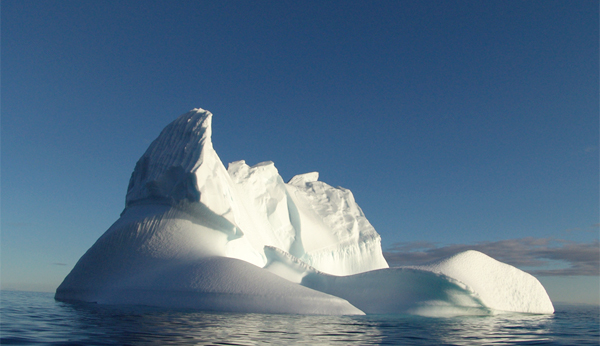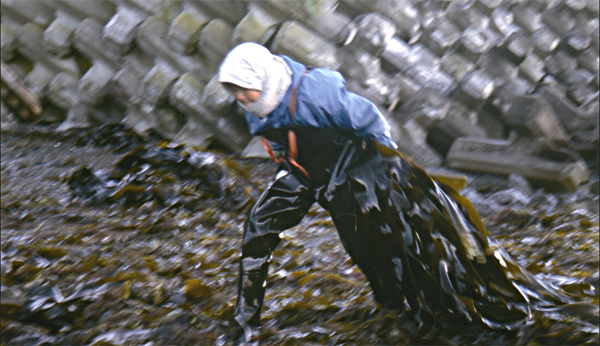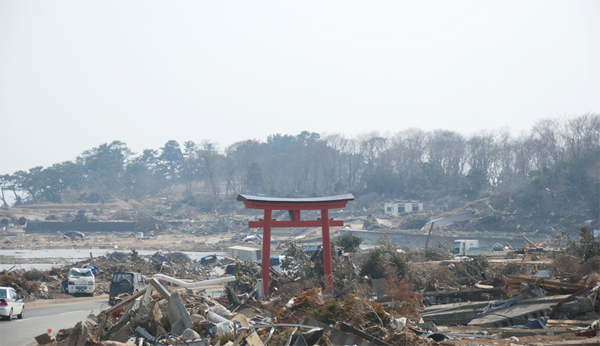Courses
Examples of Course description for courses offered in English for the Spring and Autumn terms
*You can search syllabus from the following link:
Course Title: BUSINESS STRATEGIES FOR SUSTAINABILITY
Lecturer: SUZUKI Masachika
In the time of SDGs and ESG, sustainability is becoming an increasingly important area for corporate managers (and for public policymakers) to handle in global business operations. Climate change is an example of sustainability issues. What strategic and management vision to demonstrate towards global climate change is becoming a key strategic and managerial issue for the companies in the energy-intensive industry sectors. Human rights are another example of sustainability issue. For the companies operating in the developing countries (such as oil and gas, chemical, pulp and paper, and trading companies), poor strategy and management of human rights often addresses serious risk to their business in the global market.
This course introduces concepts and practices of sustainability management. We will read several leading articles to understand how companies can cope with different sustainability issues such as human rights, the environment, product safety and labor relations. By reading them, we will explore how companies strategize and operationalize sustainability. We will also pay attention to the roles of different stakeholders surrounding them including customers, shareholders and employees as well as suppliers, financial institutions, governments and local communities. We will also review key theoretical approaches in sustainability management to gain a conception foundation on this subject.
Course Title: ENVIRONMENTAL ECOLOGY
Lecturer: TANAKA Yoshinari
This course outlines fundamental principles and applications of ecology, evolutionary biology, and conservation biology. These subjects are essential for understanding and deriving relevant solutions of all environmental issues that are related to the loss of biodiversity and the degradation of ecosystem function, which are concerned as one of the most important global environmental problems. The protection of endangered species, the invasion of exotic species, and ecosystem changes by the global warming and the eutrophication will be treated as up-to-date environmental issues, whereas the ecological and evolutionary principles behind these phenomena are focused on.
Course Title: ENVIRONMENTAL ECONOMICS
Lecturer: TSUGE Takahiro
Lectures on economic approaches to environmental issues will be provided. In this course, an explanation will be given on economic instruments of environmental policy, which is a policy tool to reduce environmental burden by utilizing market mechanisms. After an explanation on market efficiency, market failures due to externalities, internalization of externalities, economic approaches to climate change, waste issues, biodiversity conservation will be covered.
Classes will be conducted online via Zoom. The meeting ID and password for Zoom will be posted on the Loyola "Bulletin board" at least one week before the first class.
Students are required to submit a reaction paper (assignment). The instructor will answer the questions from students and provide feedback on reaction papers in the classes.
Course Title: INTRODUCTION TO ENVIRONMENTAL ACCOUNTING
Lecturer: MURAI Hideki
Environmental accounting aims at achieving sustainable development,maintaining a favorable relationship with the community, and pursuing effective and efficient environmental conservation activities. Disclosure of environmental accounting information is a key process in performing accountability. Consequently, environmental accounting helps companies and other organizations boost their public trust and confidence and are associated with receiving a fair assessment.
Course Title: INDUSTRIAL ECOLOGY
Lecturer: QIAN Xuepeng
Industrial ecology is a methodology based on systems engineering that helps to proactively and rationally approach and maintain desired environmental capacities or carrying capacities of the earth, subject to continued economic, cultural, and technological progress. Industrial ecology is an interdisciplinary field, and an organizing concept that is increasingly applied to define the interactions of today's industry (technology), environmental and social systems. Toward the sustainable society, these interactions need to be re-considered and modified, where some important analysis and assessment methods have been developed in industrial ecology. Industrial ecology serves as an environmentally related framework for technology, policy, and resource management in government and society, which will be focused in the course.
Starting from the background and concepts of industrial ecology, this course will guide students in learning methodologies and practical applications of industrial ecology, such as material flow analysis, life cycle assessment (LCA) of products and services, and industrial symbiosis, as well as the systems approach used in them. Furthermore, we will elucidate the relationship between development and the environment from the angles of industry, environment, and society.
Course Title: ENVIRONMENTAL ASSESSMENT
Lecturer: HUANG Guangwei
This course provides an introduction of environmental impact assessment. It explores concepts, procedures and techniques for conducting environmental assessments that environmental laws and regulations require. Case studies of environmental impact assessment are presented. At the end of the course, students will be able to demonstrate basic skills to use various techniques and approaches to identify and mitigate a project's impacts on air, water, land, and cultural resources.
It is a course for both Master and PhD students. For PhD students, more course works will be required.
Course Title: ENVIRONMENTAL SCIENCE OF HUMAN HEALTH
Lecturer: ANNO Sumiko
This course introduces an overview of the physical, chemical, and biological environmental factors that affect the human health, the response of the human body to changes in the environment, and the use of geographic information systems (GIS) in the environmental sciences of human health.
Course Title: MARINE ENVIRONMENTAL POLICY
Lecturer: MCDONALD Anne
Environmental policy is relatively new to the global stage of policy dialogue and initiatives. Much of the environmental policy efforts to date are land-based leaving 70% of the globe's environment, the ocean/marine environment, often ignored or shut out from mainstream policy initiatives.
The ocean is in a crisis, threatened by adverse human activities such as overfishing and degradation of marine habitats. Scientists estimate that 45% of the main marine fish stocks or species are overexploited, that large predatory fish have declined by 90% and coral reefs - ‘the rainforests of the sea' and home to one-third of all known marine species, are in peril. From the local community-based management level to global policy of multilateral environmental agreements, there is a serious need for more people with a solid scientific foundation as a researcher of the oceans in policy.
This course will explore the marine environmental policy first from a global perspective on what has driven marine environmental policy from the 20th Century and then take a more local view of efforts from countries around the world to develop marine environmental policies. We will thus be looking at United Nation related multilateral environmental agreements (MEAs) but also look at case studies from different countries to try and get both a global outlook and understanding but also understand the challenges and potentials of marine environmental policy from the local level.
Course Title: ENVIRONMENTAL HISTORY
Lecturer: MCDONALD Anne
This course will be taught 'live' online using Zoom every Monday, lecture slot 2. Students will be invited to listen to the historical narrative presented by Prof. McDonald for the first half of the lecture to be followed by interactive discussions on the case study topic.
Environmental history has been described as the Earth's birds-eye view of global history. How humans and their activities have influenced environmental change and conversely how changes in the natural environmental have impacted human society throughout history are central questions explored in the interdisciplinary study of environmental history. An academic discipline that evolved from concern over growing environmental degradation and change, it is a discipline not only concerned with the past, but aims to explore working solutions for current and future environmental problems by understanding how humans have interacted with the natural environment throughout their existence on the globe.
This course will focus on the 14 to early 20th Century, a time in history often referred to as the era of European colonialism and frontier expansionism. The reason for this focus is that it was the dawn of environmental degradation on a global scale. An understanding of this time in human history is critical to understanding contemporary society’s complex global environmental issues and challenges.
Course Title: FOREST AND HUMAN INTERACTIONS
Lecturer: PARK Haemi
Forest ecosystem provides provisioning, regulating, cultural, and supporting services. In this class, the interrelationship between forest ecosystem and anthropogenic disturbances will be introduced. This class focuses on the importance of forest conservation and the appropriate management by understanding potential human impact (i.e., wildfire, drought, and fertilization). Students can learn about basic remote sensing and GIS techniques for forest monitoring.
Course Title: ENERGY AND ENVIRONMENTAL TECHNOLOGY
Lecturer: SUZUKI Masachika
To solve energy and environmental crisis, the innovation and diffusion of new, clean and dynamic technologies are crucial. The innovation and diffusion of the technologies bring new and exciting business opportunities likewise in future sustainable society. This class overviews a landscape of energy and environmental technologies. Part of the class introduces a research project where students select a technology of their interest and investigate potentials and barriers in innovating and/or diffusion the technology of their choice. The research questions for this project include: 1) how the technology help to solve energy and environmental crisis; 2) what level of business opportunities exist in the development of the technology and: 3) what benefit the technology may bring to society. Moreover, the project is designed for students to highlight the barriers in the development and address roles of the public (national and local government) and private actors (companies) in promoting them.
Course Title: STRATEGIC ENVIRONMENTAL MANAGEMENT
Lecturer: SUZUKI Masachika
Recently, we see more extreme, sometimes catastrophic events in many parts of the world. Scientists demonstrate better evidence indicating the link between our economic activities and the environmental degradation. We are beginning to realize that environmental issues are no longer negligible in business operations. Negligence of the issues may result in serious economic loss for a company. On the other hand, many companies have begun to recognize environmental management as a way forward to generate profitable opportunities. Toyota made a major investment to produce hybrid cars before its competitors. As you witness now, the hybrid cars have been sold well in the international market. Another example can be observed in the chemical industry. DuPont placed research and development efforts in producing alternative chemical to the ozone-depleting CFCs (chlorofluorocarbons) in the 1980s. The company successfully developed alternative chemical to CFCs and altered its strategic position on international regulation (Montreal Protocol) to ban CFCs.
This course introduces essential concepts of strategic environmental management as well as leading practices of environmental management. To begin with, we will review essential theoretical approaches in strategic environmental management. Through the review, we will be able to gain conceptual foundation on this subject. We will use several case studies to help us understand environmental management in practice. We will then explore the linkages between concepts and practices.
Some questions that we will address in this course are following:
- 1) What are the leading examples of environmental management among companies?
- 2) How are the companies dealing with global environmental sustainability issues such as SDGs (Sustainable Development Goals), ESG (Environment, Social, Governance), and climate change?
- 3) What are the drivers for the companies to formulate environmental strategy and management? Are they external and/or internal drivers? Are there any pressures from the external environment for the companies to cope with sustainability such as regulatory, social, market and technological pressures?
- 4) How do investors consider the companies that have better environmental strategy and management? Do they consider it as part of company's intangible values? How does environmental strategy and management relate to competitiveness of the companies in the global market?
- 5) How do the companies deal with environmental issues through their global supply chain?
This course is open for any students who are interested in environmental management. If you are interested in learning about business implications of global warming, for example, this would a course of your interest. If you are interested in exploring the roles in the main business functions such as marketing and finance in environmental management, this would be a course of your interest too.
Course Title: ENVIRONMENT AND SUSTAINABLE LIFESTYLES
Lecturer: HIRAO Keiko
The goal of this course is to raise sensitivities for the interdependence of ecosystems, economic systems and social systems, with particular interest in the concept of social sustainability, which refers to processes that generate social health and well-being as well as the institutions that facilitate environmental and economic sustainability now and for the future. Based on the reading materials listed in this syllabus, we will work together to clarify and develop our joint understanding of the concept of social sustainability by surveying possible definitions and measurements of social sustainability; investigating the relationship between social sustainability and other aspects of sustainability; and exploring the cases that attempt to achieve sustainability at local, regional and global scales. Specific topics to be explored may include: the natural and social scientific principles and theories underlying sustainability, the different and often conflicting cultural and disciplinary perspectives of sustainability, how to quantify the impacts of lifestyle choices on the environment and resource use, philosophical and practical approaches for achieving sustainable lifestyles and socio-ecological systems. The details are subject to change according to the needs and levels of the students.
Course Title: ECOLOGICAL RISK ASSESSMENT OF POLLUTANTS
Lecturer: TANAKA Yoshinari
The modern material civilization is based on numerous chemical substances, some of which have adverse effects on the ecosystem and the human health. Sustainable development of the socio-economic system needs to utilize beneficial chemicals that are efficient for facilitating human welfare under an appropriate risk management. This course will give an introduction to ecotoxicology (environmental toxicology), environmental chemistry, and the risk assessment of chemicals. Environmental toxicities of chemicals are mainly categorized into ecosystem effects and human health effects. This course will cover the entire range of toxicities as regards the mechanism or mode of action, the method of quantification, and the risk assessment method, whereas the emphasis will be put on the ecological effect of pollutants.
Course Title: ECONOMIC VALUATION OF THE NATURAL ENVIRONMENT
Lecturer: TSUGE Takahiro
In this course, the environmental valuation methods, those are methods for evaluating the economic value of the environment, are explained using the economic valuation of the natural environment as examples. In addition, students will learn concrete analysis procedures through practical training using a personal computer. A certain level of math skills is required.
Active learning such as group work will be conducted while focusing on lectures.
Classes will be conducted online via Zoom. The meeting ID and password for Zoom will be posted on the Loyola "Bulletin board" at least one week before the first class.
Students are required to submit a reaction paper (assignment). The instructor will answer the questions from students and provide feedback on reaction papers in the classes.
Course Title: URBAN SUSTAINABILITY
Lecturer: QIAN Xuepeng
Urban sustainability has become one of the major issues for sustainable development, with the increasing urban population (50% of global population) and expansion (95%) (United Nations, 2014), listed as “Goal 11 sustainable cities and communities” in SDGs. This course is organized in the flow of Plan-Implementation-Assessment to provide a holistic view of urban planning and management for sustainability transformation. Topics such as transportation, energy, urban metabolism, green infrastructure, food and water will be explained and discussed for exploring the visions of urban sustainability. Public-private-partnership, innovation will be covered in implementation part to understand the urban transformation. Theory, indicators, and challenges will be explained in the last part of assessing urban sustainability. Group presentations related future visions and good practices are scheduled too.
Course Title: JAPANESE EXPERIENCES IN ENVIRONMENTAL MANAGEMENT
Lecturer: ASAEDA Takashi
Various types of environmental problems/hazards have been experienced in all over Japan. At the same time, there are certain unexpected environmental problems which can happen any time, threatening the life and environment. The environmental problems that happened, either before the development or after the development, together the causes and effects of the ongoing development projects are introduced with the intact mechanism in the lecture. Then the implemented countermeasures by Japan to overcome such environmental problems are discussed categorizing whether they are enforced policies or the direct mechanical method.
The citizen's partnership is one of the emerging trends in the world as well as in Japan in the field of anti-pollution activities, nature restoration and recycling activities based on corporate social responsibility. Here, the important examples are shown and the challenges behind the social activities including the environmental education are discussed.
The environmental issues are closely bonded with hazardous events. Also, Japan is one of the hazard rich countries in the world, and various types of hazards are occurring each year. Thus, disaster prevention mechanisms are particularly important, though some of them are contradictory to the environmental conservation.
Conservation of bio-diversity is one of the most important environmental issues in the world. Japan has a unique ecosystem that is rich in biodiversity, because of the geological setting and the geographic location of the country. However, it often faces critical problems, particularly in the construction works. The relevant examples are shown with the scientific and political backgrounds behind them with the recent movements.
Understanding environmental problems of Japan requires the comparison with other countries' condition. Thus, discussion, or assignments if time schedule is hard, will be offered each time to compare with the attendants' countries.
Scientific matters are explained as easily as any audience can understand.
The lecture schedule will be slightly changed depending on the background knowledge of the audience.
Course Title: ENGINEERING OF RECYCLING
Lecturer: ORI Akemi
Recycling is a very important factor for the formation of a recycling-oriented society, but if it is set recycling as goal, it will increase the environmental burden. Recycling is not a goal. In order to create a recycling-oriented society, it is necessary to consider what is more effective and efficient recycling, from both technical and social institutions. The purpose of this class is to understand the current status of recycling in Japan and around the world, its significance, and issues through omnibus-style lectures from an engineering perspective. This lesson is paired with Waste Management in Asia, and it is recommended to take both recycling engineering technology and policy classes to better understand recycling in a recycling-oriented society.
Course Title: WASTE MANAGEMENT IN ASIA
Lecturer: ORI Akemi
As the international community is to diversify, in order to construct a Recycling-based Society, we need to think about the waste management not only in Japan but also in the entire Asia. The title is the waste policy in Asia, but since waste is an international issue, we will look at waste issues not only in Asia but also worldwide. We will also deal with recent marine plastic issues, Circular Economy, waste and SDGs. In the class, not only lectures but also government officials of automobile recycling and construction recycling, recycling companies, etc. will be invited as guest speakers. In addition to utilizing videos, tours to recycling plants will be conducted.For Doctor Course students, in addition to the basic lectures, we will give more analytical classes based on the themes of their dissertation.
Course Title: GLOBAL ENVIRONMENT OUTLOOK
Lecturer: HUANG Guangwei
This is a multidisciplinary course that focuses on climate change in relation to various environmental issues such as aquatic ecosystem degradation, water resources and air pollution. It also addresses the intensification of flood disasters due to global warming. Besides, students will learn basic environmental data analysis and gain knowledge on environmental indicators.
Course Title: ENVIRONMENTAL PLANNING
Lecturer: HUANG Guangwei
This course is an introduction to environmental planning at the local, regional, national and global levels. After presenting an overview of the development of environmental “thinking” and environmental planning, emphasis is placed on watershed environment planning. It is intended to present a total picture of watershed planning so that it covers subjects from water resources, floods to water quality and even waterscape. An emphasis is placed on urban flood risk assessment and management. At the end of the course, students will be familiar with the process of developing an integrative watershed management plan that takes into consideration of various issues and concerns and be able to propose some concrete actions to deal with them.
Course Title: PUBLIC HEALTH AND ENVIRONMENT
Lecturer: ANNO Sumiko
The course introduces a lecture on public health and environment, emphasizing the environmental health risks resulting from human activities.
Course Title: ENVIRONMENTAL POLICY: ANALYSIS AND PRACTICE
Lecturer: MCDONALD Anne
Mainstreaming environmental policies is a universal challenge of policy makers at all levels of government, be it local, national or international. This course will explore the relationship between local-national-and global environmental policy initiatives and environmental change. How do global initiatives such as the Kyoto Protocol and the UN Convention on Biological Diversity influence national and local environmental policy dialogue, design and implementation? Conversely, what local initiatives influence national and global policy? Further, what are the implications of environmental change for local-national-global policy interactions?
Looking at specific environmental issues and themes from around the world, this course aims to explore the relationship between local, national and global interactions with a specific look at the barriers to integrative environmental policy development, but also explore the potentials of integrative policy formulation and implementation needed to mainstream environmental policies from local to global levels.
Course Title: BASIC OCEANOGRAPHY AND GLOBAL ENVIRONMENTAL SCIENCE
Lecturer: MCDONALD Anne
Provide basic knowledge on diverse aspects of oceanography and global environmental science by omnibus style lectures by JAMSTEC (Japan Agency for Marine-Earth Science and Technology) scientists of geophysical science, geophysical fluid dynamics and ocean observation, paleoclimatology, marine ecology, marine microbiology, hydrothermal vent ecosystem, marine biogeography and paleontology, marine sedimentology, volcanos and continent formation, mantle geoscience, modeling of marine ecosystem, long-term projection of global environment, socioeconomic scenario and global environment, conservation of marine biodiversity.
*NOTE: because this is a course taught by a team of part-time lecturers from JAMSTEC lecture title, content and scheduling might be subject to change.NOTE: because this is a course taught by a team of part-time lecturers from JAMSTEC lecture title, content and scheduling might be subject to change.
Course Title: ENVIRONMENT AND DEVELOPMENT IN DEVELOPING COUNTRIES
Lecturer: PUTHENKALAM John Joseph
Environment and Development of around 150 nations of the world that are considered as developing economies will be the focus of this lecture course. This course analyzes various issues related with these countries, where the sustainability of the environment is challenged as economic development is pursued. Can we find a harmonization model of environment and development to overcome the existing problematic models of economic development? The concept of sustainable and human development is an intelligent response towards questions of our contemporary beings. Human well-being and sustainability should therefore be integrated in all areas of our studies. Consequently, let us try to design new harmonization models of development and environment where present generations can enjoy a decent standard of living while making sure that future generations also have a safe planet Earth to make their dwelling. This course would enable student to understand the problems as well as paths of solutions like UNSDGs and Paris Accord (2015-2030) that are open to developing countries.
Course Title: DIVERSITY AND DISASTER RISK GOVERNANCE
Lecturer: KAWAHARA Yoshihisa
未定。追ってお知らせします。To be announced
Course Title: ENVIRONMENTAL REMOTE SENSING
Lecturer: PARK Haemi
In the first part, students will learn the principle of satellite remote sensing. Research examples of environmental remote sensing will be introduced. In the last 5 classes, a task regarding land cover map creation will be given. You would be asked to bring your laptop. Students can get the feedback from lecturer and class members regarding the final presentation. Final report regarding RS application will be required.
Course Title: SEMINAR A, C
Lecturer: PUTHENKALAM John Joseph
Around 150 nations of the world are considered as developing economies. This seminar focuses on the various issues related with these countries, where the sustainability of the environment is challenged as economic development is pursued. Can we find a harmonization model of environment and development to overcome the existing problematic models of economic development? The concept of sustainable and human development is an intelligent response towards questions of our contemporary beings. Human well-being and sustainability should therefore be integrated in all areas of our studies. Consequently, let us try to design new harmonization models of development and environment where present generations can enjoy a decent standard of living while making sure that future generations also have a safe planet Earth to make their dwelling. This seminar would enable student to understand the problems as well as paths of solutions that are open to developing countries.
Course Title: SEMINAR A, B, C, D
Lecturer: SUZUKI Masachika
This seminar is design for students to obtain essential knowledge and tools to conduct individual research at the graduate school level. Through the course of the semester, students are encouraged to make several presentations on their research topic, research progress and tentative results of their research. In parallel, the instructor provides guidance for students to prepare for their graduation thesis. The guidance includes instructions on quantitative/qualitative analytical skills as well as research skills to articulate research questions, collect proper data, and structure thesis. The instructions to improve academic writing, presentations, and research proposals are also provided in working toward the completion of a graduation thesis.
Course Title: SEMINAR A, B, C, D
Lecturer: MCDONALD Anne
Building the foundations of one's research skills are critical in the first year of master degree studies. There are many different approaches to research and the focus of this research seminar is to explore case study and field based research approaches and methodologies. Weekly seminars will include the reading of one to two case studies and/or peer reviewed journal articles, followed by open discussions. To build field-based research skills, will include field studies as part of seminar activities.
This course will be taught live online using Zoom every Monday evening. Students will be invited to listen to the case study presented by Prof. McDonald for the first half of the seminar to be followed by interactive discussions based on the case study questions.
Research Seminar A and B are taught together consecutively so all students who are interested in taking Prof. McDonald's research seminar must sign up for both Seminar A and B.
Course Title: SEMINAR A, B, C, D
Lecturer: HUANG Guangwei
The concept of the seminar is Research-oriented, Discussion centered and Practice-minded. A number of water-related subjects will be recommended to students for in-depth discussion and students are welcome to bring any subject of their interest to seminar for information sharing. Field study of river or lake will also be conducted.
A and B will be run together.
Course Title: SEMINAR A, B, C, D
Lecturer: ANNO Sumiko
This seminar provides students with the academic, communication, and critical thinking skills needed to conduct research in the field of environmental health. Students will be required to read research articles and prepare for the discussion on the reading. Also, students will learn the principle and applications of RS/GIS/ML/DL.
Course Title: SEMINAR A, B, C, D
Lecturer: TSUGE Takahiro
Students will study environmental eonomics. Environmental economics is a field aimed at elucidating the causes of environmental issues using economics theory and exploring effective countermeasures. Specifically, using analytical methods such as microeconomics, macroeconomics, and econometrics, the causes and solutions of environmental issues including climate change, waste problems, ecosystem destruction, transboundary pollution, and depletion of resources are explored.
Students will read and present papers on the topic of interest.
A certain level of math skills is required.
Classes will be conducted face-to-face. However, those who have applied for and received permission from the university will be allowed to participate via Zoom. The meeting ID and password for Zoom will be posted on the Loyola "Bulletin board" at least one week before the first class.
Course Title: SEMINAR A, B, C, D
Lecturer: QIAN XUEPENG
Urban and environmental problems are complexly intertwined with the factors of politics, policy, economics, management, science and technology, and social culture on the temporal and spatial axis, short- and long-term, and local and global scale. Hence, to design and plan optimal solutions for these issues, we must understand the complex urban and environmental systems from multidimensional perspectives. Therefore, it is necessary to broaden our horizons and minds, gain specialised knowledge and study methods from diverse fields, such as economics, business management, policy, psychology, and other social sciences, engineering, and informatics, and facilitate improvements through the integration and advancement of interdisciplinary methodologies.
Students are expected to conduct research on their own themes, report on their progress regularly in class, and make improvements based on group discussions and supervisor's feedback.
Course Title: SEMINAR A, B, C, D
Lecturer: PARK Haemi
This seminar is based on remote sensing technology for environmental issues.
Current research trends and analysis skills will be introduced by faculty.
Students are encouraged to find research topics by themselves.
Faculty will give guidance according to each research theme.
Course Title: SEMINAR A, B, C, D
Lecturer: HIRAO Keiko
This course is designed to give students foundations of research skills required for completion of master degree program. The students will collectively learn the basics of research skills, including defining the topic, literature review, hypothesis building, and thesis compilation and presenting the findings.
Course Title: SEMINAR A, B, C, D
Lecturer: TANAKA Yoshinari
We read some chapters of standard textbooks of ecology and conservation biology, to deepen our understanding of global environmental issues related to loss of biodiversity and deterioration of ecosystem. Besides, attendees of this seminar will determine their own research topics, and advance their document researches. They will be assigned to present papers related to the research topic and share the knowledge with all participating students. Finally, they are required to summarize their research results as the final reports.
Course Title: SEMINAR C, D
Lecturer: ORI Akemi
Environmental problem is a problem that must be international to think on a global scale. At the same time, that is involved in all of our lives where. We'll consider how we control measures of this problem by law while considering the application and the limits of the law. We do a literature report and discussion while aware of the global environment and realistic point of view. In order to firmly discussed in all it is necessary that every one to prepare firmly. The base of the lessons is to analyze read exactly the specified books and precedents. Evolve the discussion further by adding a field demonstration. Students need to prepare a presentation selecting the themes that themselves are interested and discuss about it through seminal. The past topics are, waste management, eco-tourism, management of chemical substances, Natural conservation and community participation. Please examine the theme that interests you. We will support you to deepen them.
*Courses and/or lecturers may be subject to change.







